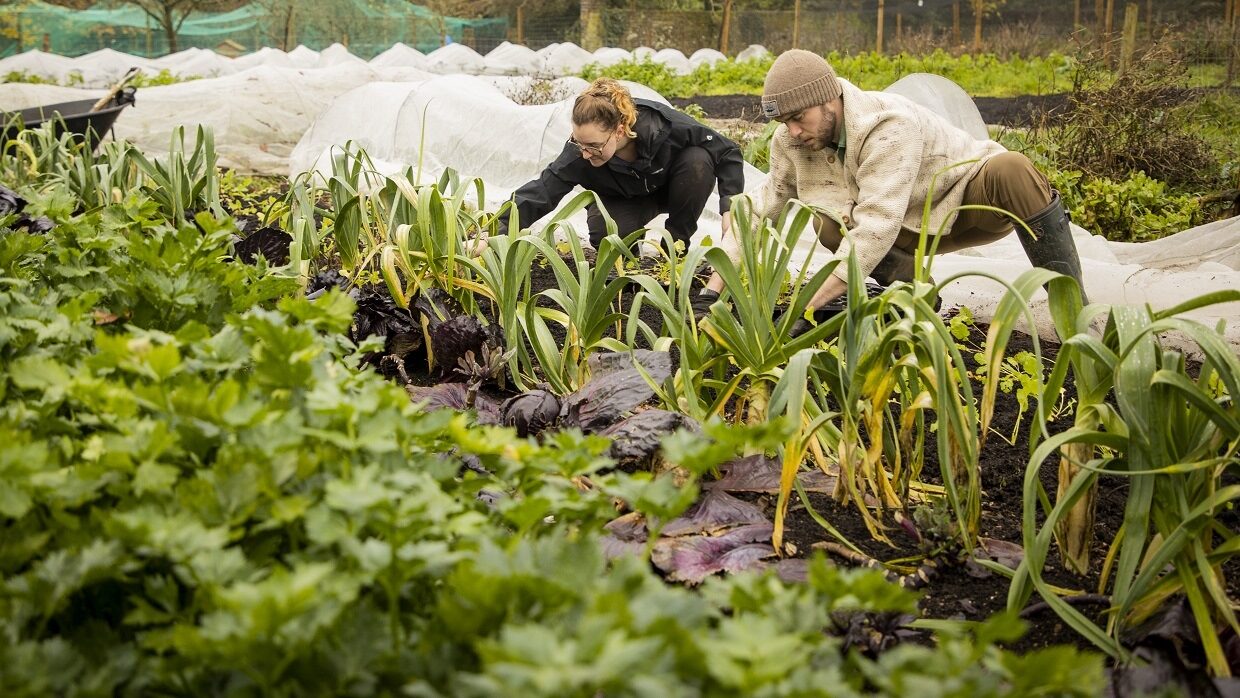Sodexo UK & Ireland gives suppliers a net zero progress deadline and will cease working with those who do not meet it

Sodexo UK & Ireland has today announced its net zero supply chain engagement strategy, and stated that from January 2030 it will only work with suppliers demonstrating tangible progress through published reporting.
- Sodexo UK and Ireland currently works with more than 4,000 supply partners, spending over £800m every year.
- Supply partners representing 75% of Sodexo’s supply chain emissions have already received a roadmap detailing Sodexo’s requirements of its supply chain, including the 2030 deadline.
- Through an impact lens, the business is most focused on the 500 organisations who collectively represent 90% of its supply chain emissions.
- Sodexo is providing its supply partners with mentoring and considerable support to help them meet the net zero milestones.
The food services and facilities management business was one of the first organisations to have its UK and Ireland net zero 2040 target validated by the Science Based Targets initiative (SBTi). The organisation has been transparent about its net zero journey and progress, including the fact that just 2% of its emissions sit in Scopes 1 and 2 – in the direct control of Sodexo UK & Ireland. Of the remaining 98% of its total emissions, 34% sit within its supply chain.
Supply partners were first made aware of the net zero supply chain engagement strategy and roadmap in March 2023, during Sodexo’s Partners with Purpose supplier conference. The organisation had, however, already begun working closely with a number of its suppliers to support them in formalising and documenting expectations to reduce carbon emissions.
Sodexo’s supplier mentoring programme is key to the success of this strategy. Around 70% of Sodexo’s supply chain in the UK and Ireland is made up of Small and Medium Enterprises (SMEs) and Voluntary, Community and Social Enterprises (VCSEs), most of which cannot be expected to have teams dedicated to sustainability or afford consultancy support.
While Sodexo is being very clear with its supply partners about expectations, the business is also offering considerable support where these organisations are experiencing challenges, to help them complete the work needed to hit the milestones. For example, Sodexo UK & Ireland has introduced a two-year grace period for SMEs and VCSEs needing extra help to complete some of the requirements.
The first milestone is being implemented – Sodexo requires suppliers representing 75% of its supply chain emissions to provide a detailed annual Carbon Reduction Plan identifying opportunities for collaboration and areas of improvement, while also reporting on scope 1 and 2 emissions at the minimum.
Further milestones that Sodexo has set on its roadmap include:
- From January 2024, the evaluation criteria of all tenders to include a minimum of 10% Social Value Weighting.
- By September 2025, suppliers representing 75% of Sodexo’s supply chain emissions will need to have set their net zero science-based targets validated by the Science-Based Targets initiative (SBTi).
- By September 2027, suppliers representing 90% of Sodexo’s supply chain emissions will need to have set their own SBTi-validated net zero targets.
- By January 2030, Sodexo will only partner with suppliers who can demonstrate tangible progress through published reporting.
Initial research conducted by Sodexo in November 2021 revealed that, of 87 suppliers polled, 62% had already made a commitment to achieve Net Zero by 2050 or sooner, while 20% did not have a Carbon Reduction Plan in place.
The survey also revealed that the majority of its suppliers were at that time only measuring scopes 1 and 2 – with just 37% measuring all three scopes.
When we made our commitment to net zero by 2040, we committed to delivering on something that is truly meaningful and would have real impact.
We have always known that this is not going to be easy, it will be hugely complex and will require an enormous collective effort throughout our entire value chain. We are so proud of the extensive and diverse supply chain we have built – we genuinely work with some incredible businesses, big and small.
Their response to this challenge and to our offer of mentoring and other support has been positive and we feel confident that this roadmap will deliver ever more impactful reductions in emissions.
Many of our suppliers have already told us they are passing this message down through their own supply chain, which over time has the potential to create a significant ripple effect.d
We’ve been working with Sodexo for a number of years now, and part of that work focuses on implementing carbon efficient initiatives to lower our emissions.
Sodexo has been a leader in sustainability and is at the forefront of collaboration, engaging regularly with their supply chain on sustainability.
They have been holding cross industry sessions to share best practice on how we can work better together, which has been a driving force for our own approach with suppliers when it comes to carbon emissions reduction.
We’re very pleased with Thomas Kneale’s ongoing work around carbon reduction, yet we had been struggling to translate our actions into clear and meaningful numbers.
Getting that extra support from Sodexo has added rigour to our work and given us real confidence in our plans.
Sodexo UK and Ireland commenced its Net Zero journey in 2010, calculating its scope 1 and 2 emissions, working in partnership with WWF. In January this year, Sodexo recorded in its progress update report a 33% reduction in scope 1,2 and 3 GHG emissions, compared to its 2017 baseline.
*Scope 1 relates to emissions released directly through Sodexo, for example, car fuel and office heating. Scope 2 emissions include all that is generated indirectly by the business through the purchase of energy and powering offices. Scope 3 emissions come from Sodexo’s value chain, through the supply chain, business travel, employee commuting, client site energy and waste.
Read more about our Net Zero work